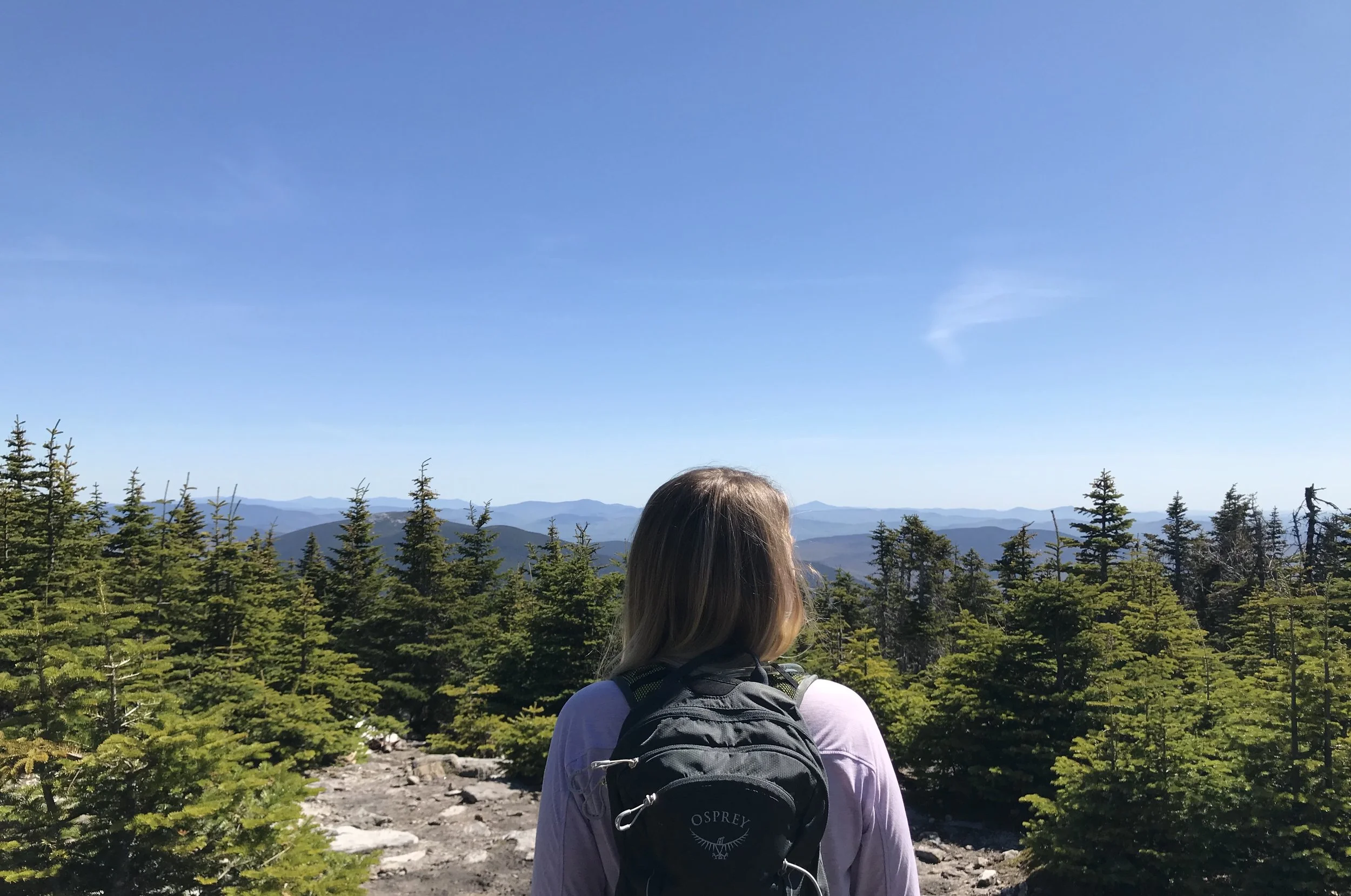Maine Day Hiking Essentials
Not sure what to bring with you on your next day hike? Want to make sure you’re prepared? Look no further! This 10-item checklist has you covered!
This 10-item checklist outlines everything you need in your day pack for hiking in Maine. Planning ahead and packing these essentials will help keep you safe and comfortable so you can have the best outdoor experience possible. A day pack is perfect for those shorter hikes that last 5 hours or less. If you’re doing more than 10 miles, I would recommend switching to a pack that is 20 liters or larger.
1. Spare change of clothes
First things first, always should pack a spare change of clothes. Maine weather can change on a dime, so it’s crucial to have an extra shirt, pair of pants, underwear, socks, etc. There’s nothing worse than getting rained on or stepping in a huge pile of mud and not having any clothes to change into. I typically pack these in a dry sack in the bottom of my pack, so they’re out of the way and stay dry.
2. Hats and mittens
If possible, I also like to put a hat and a pair of warm mittens or gloves in the dry sack. These can be used to keep warm on the summit or if I get lost and have to stay in the woods overnight. I typically pack wool mittens, as they will retain heat and keep your hands warmer than gloves will.
3. Matches
Speaking of warmth, I ALWAYS make sure to pack matches in my day pack. They are light, don’t take up a lot of space, and could literally save your life. You should never hike in the woods without them! Store the matches in a waterproof bag or container. Waterproof matches are ideal.
4. First aid kit
This is another must-have item, because injuries are never predictable or fun. Having a first aid kit handy could save your life, especially since emergency personnel may take a while to reach you. Make sure your first aid kit is fully stocked with emergency blankets, multi-sized bandages, pain relievers, disinfectant, etc.
5. Navigation tools (paper map and compass)
These two go hand in hand for a reason. You should always look over the trail you’ll be hiking prior to actually hiking it, so you know what to expect in terms of length and difficulty. Maps are great for helping you find your way if and when plans change due to unforeseen circumstances. Compasses are helpful tools for making sure you’re going the right direction and they can help get you back on track if you lose your way.
6. Food and extra food
Hiking can easily turn into an all-day outing. Think of all the calories you eat normally, then add on the calories you burn while hiking 1-5 hours. That is how much food you should be bringing with you. Pack foods with high calories and a lot of protein, such as: nuts, protein and granola bars, and candy. If possible, also store your food in a dry sack to prevent it from getting wet.
7. Water, water, and more water
Water is important. You can never depend on having access to a reliable water source. A good rule of thumb is to always bring at least 2 quarts of water per person while hiking.
8. Flashlight or headlamp
Sometimes, hikes don’t go as planned. One of the most common (and most dangerous) situations is people hiking past their turnaround time because they are obsessed with summiting. Then, they find themselves hiking down in the dark, which is hard, confusing, and scary. Without a proper flashlight or headlamp, it would be nearly impossible to find your way back down the mountain. Cell phones don’t count as a flashlight due to their insufficient battery life.
9. Weather appropriate gear/clothes
This differs per season. In the summer, you should wear moisture-wicking clothes that dry fast and bring a rain jacket for when those summer lightning storms hit. In the Fall, light layers are best, as the mornings tend to be chilly, followed by a quick mid-day temperature spike. In the winter, thick wool base layers followed by a thick fleece and a down jacket are must-haves, as well as snowshoes or microspikes.
10. Pocket knife
Last but not least, a pocket knife is extremely versatile and can come in handy in a number of situations. I never hike without one!
I hope you found this checklist both insightful and helpful! Be sure to have it handy the next time you’re packing for a day hike, it might help make your hike more enjoyable!
Stay safe and hike happy, friends!

